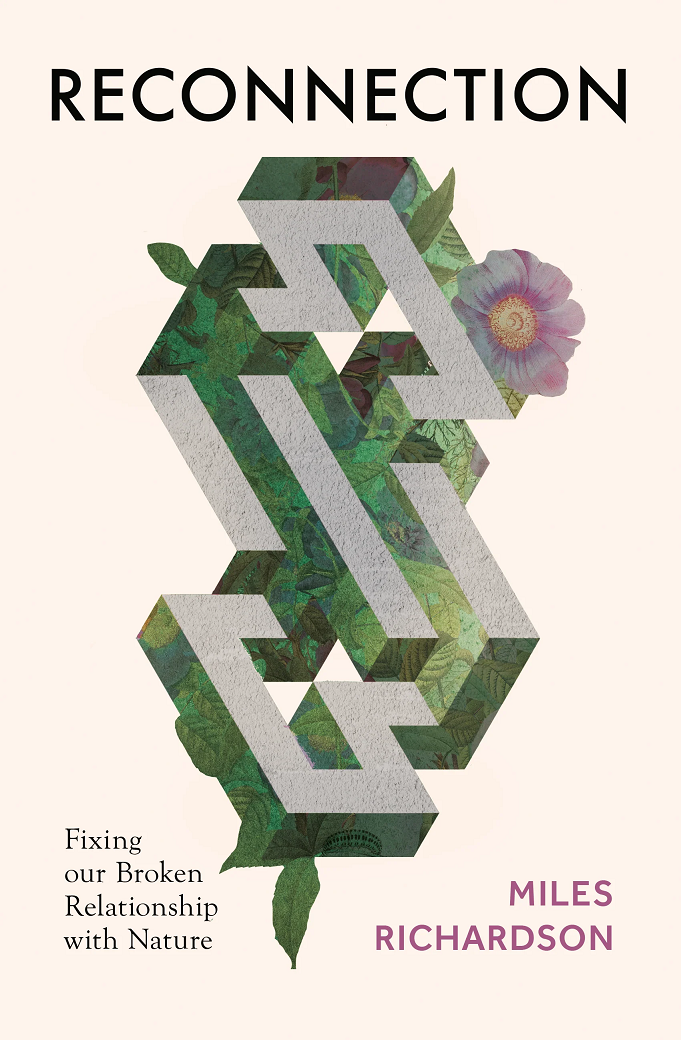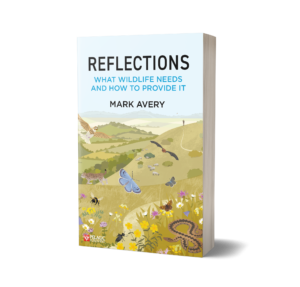
This is a book of three parts: our broken relationship with nature; the benefits of connecting with nature; and how to fix things. Each is an interesting look at the issues and the author brings a lot of his own thoughts and experiences into the book, as well as the studies and evidence from academia.
I enjoyed the opening of the book where we are told of the author’s early years and his changing relationship with nature. He’s a bit younger than me but much of it still resonated strongly, as I am sure it would with many readers.
The account of our broken relationship with nature is based on many academic studies, with many of them comparing attitudes to nature, and correlates of those attitudes, across countries in powerful ways. There was much in here that was new, and fascinating, to me. I came away from this first section with a lot more information, and better understanding (I guess) of where the British fit into a wider picture of people’s relationship with nature and how, and why, it varies from person to person and community to community.
The second series of chapters deal with the benefits of having a closer and ‘better’ relationship with the nature in which we are embedded. This was more familiar to me but nonetheless a commanding summary of the issues.
The third collection of chapters deals with the difficult business of fixing a broken relationship – for our benefit and nature’s benefit. This is always the difficult issue – how do we get out of the mess we are in? I found this the least satisfying part of the book and if you judge it by the simple test of ‘What has to be done and who has to do it?’ then I came away unsure of the answer. I felt the author was trapped in a logical conundrum. If the problem is that we are disconnected from nature then how do we make things better without being better connected with nature? And the trouble is, that might be right, unappealing a conclusion though it is. It would be perfectly possible to end this book by concluding that things are so bad, we care as individuals and as a society so little for nature, that we’ll never get out of this mess. Sometimes, all of us who are engaged in conserving wildlife and creating a more sustainable future fear that is the case.
On the very last page of the text Richardson argues that we need a fundamental reboot of our relationship with nature and mildly criticises those who ‘would sooner focus on technical fixes to the errors in how nature is controlled and used, rather than fixing the underlying failure of the human-nature relationship’. I think I am firmly in that latter camp and unashamedly so. That is partly because my focus is on getting more nature into our lives rather than changing people’s views about nature. If you were campaigning for gender pay equality you would be more interested in levelling up (or down) incomes rather than whether everyone was happy about it. Most changes, by their very nature have to be won in the teeth of opposition rather than that of universal acceptance. And most changes once made, whether they be good or bad, but particularly if they are good or neutral for most people, quite quickly become part of the accepted norm and are difficult to undo. Most of the rules we live by were opposed, sometimes vehemently and that opposition had to be overcome not won over, and then those rules became the norm – take votes for women, wearing seat belts and income tax as examples.
Let me give an example from nature conservation. I really don’t think there was a majority view in favour of reintroducing Red Kites to England or Scotland – my recollection was that opinion was divided (on practicalities and value for money) even within the conservation camp, and the general public wasn’t generally fussed one way or the other, and some interest groups were pretty much dead against the idea. Now, decades later, the success of the initiatives mean that vocal opposition is pretty muted (partly because none of the predictions of dire consequences has come to pass) and far more people get a kick out of seeing Red Kites in their lives and have found a connectedness with nature that they didn’t know they were missing. That’s a tiny example from nature conservation but it will, I suggest, apply in future to the rolling out of rewilding too.
But, my view is also based partly on a long look at our successes in nature conservation as well as our failures. We have a lot of successes under our belt, as well as a long list of failures and a very long list of things that haven’t really been tackled yet. How do we move more things into the success column? Do we wait until we can fundamentally change our relationship with nature? I don’t think so – we’ll be waiting for ever, and we have had successes despite not having the whole of society on side. As the author points out, our disconnect from nature started long long ago, way beyond the lifetime of a present-day nature conservationist. Clearly, those recent successes were achieved against a background of an overall broken relationship with nature, and that suggests very strongly that more successes are within our grasp. I would argue many more successes are achievable, if only we up our game and mobilise those who do care so that they have greater influence with those who don’t, especially those who have the power to do better.
I agree with most of this book and found it highly stimulating. Just because I slightly part company with the author about practical ways forward it doesn’t mean that I didn’t find the journey to the last page worth making. The author has impressive credentials and a great command of the social science literature (much of which he has been involved in writing). I was grateful that he brought in his own love for, and experience of, nature at frequent intervals because it showed that this wasn’t just an academic exercise – and it clearly isn’t.
The cover? A difficult subject for a cover but this one does nothing for me. I’d give it a very lowly 5/10.
Reconnection: fixing our broken relationship with nature by Miles Richardson is published by Pelagic Publishing.

My forthcoming book, Reflections, will be published on 4 July.
Details – click here and read what others think about it.
[registration_form]
Well I think the cover is brilliant. An evocation of Escher it conveys its message with great skill. Compared with the pretty, pretty drawings of birds and bees one normally sees on wildlife books, this is both challenging and creative in spades. But it is only my opinion. In a bookshop it would be an instant draw.